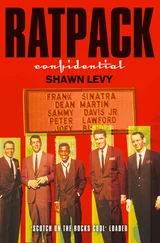“And where did you get it?” Loretta asked.
Dean merely shook his head. Never mind. He tightened the pouch and placed it back in the bottom cabinet drawer and locked it.
They left the room and he locked his office door behind them. He explained that they were entering a world full of dangers, of persecution, of enemies. He told her for the ten-millionth time about the Short Creek raid, the agents pouring into the homes of the righteous, driving out mothers and children, locking up their fathers.
“That was not so long ago, little sister,” he says. “Your aunt Ruth was among those children. That is still the world that we live in.”
Those two days had been awful — Dean climbing onto her every half hour, it seemed, until she was so sore she asked him to stop, until she feared that nothing could stop her from getting pregnant now, not with this flood of his seed, and when she used the solution it burned so badly she bit her thumb and cried.
But she took careful note of the ring of keys that Dean carried. Careful mental note of which keys, among the thick ball of them, opened four locks: front door, office door, cabinet, strongbox.
• • •
They arrive at the house in single file, crossing the dirt driveway and aiming straight for the side door. Both of these houses, this one and Dean’s father’s home, are squat, square brick affairs, with front doors and side doors facing their dirt drives, each door fronted by a cube of concrete. Uncle Louis’s place has a shed out back, and a cinder-block milking barn across the driveway, and cow pasture all around. Behind the barn are haystacks and a low row of calf pens. Loretta finds the smell — fresh manure and cut hay — comfortingly familiar.
Dean raps on the screen door, and Aunt Becky sings, “Come in, come in,” and in they come, clustering on the bright yellow linoleum, not leaving Loretta enough room to let the door shut behind her, and so she stands there, framed, as Aunt Becky dries her hands on a towel and fusses, never stops looking about, offering a hand, patting, smiling, moving, nervous. At the counter stands a tall, knobby boy with a rubbed brush of reddish hair, leaning with half a buttered roll in his hand. When Loretta glances at him he looks away quickly. She feels him tracking her in his peripheral vision, shooting quick visual sorties her way, and his appraisal lights up her nerves. She is familiar with this kind of attention, but usually not from boys. The boys in Short Creek tend to leave, or be kicked out, by the time they’re in their middle teens. Loretta feels both younger and a thousand years older than this worldly kid in blue jeans and T-shirt, though she knows that he is older, that he is Jason, that he is seventeen, that he is technically her nephew if you drew it up on the family tree — but that he considers her unrelated. Or not very related, anyway.
The children crowd farther in and she lets the screen door close behind her. On the boy’s T-shirt is an image of a large red tongue hanging from a set of bright red lips, a lush sexual image, and under it the words “Hot Rocks.” She feels herself blush behind the ears.
The boy says, “Welcome to Idaho,” says it directly to her, but it is Dean who answers, “Don’t forget I grew up here.”
• • •
Uncle Louis sits at the head of the table, offers Dean the seat at his right hand. Aunt Becky’s seat stays open at his left, while she and Ruth shuttle the dishes to the table: roast chickens, mashed potatoes, green beans, hot rolls, jugs of milk. Loretta sits among the children, across the long table from Jason, the two of them volleying looks. He seems to be watching her even when he is not watching her. He is not handsome, particularly — gangly, hips wider than shoulders, a scruff of curly reddish hair cut close, with those big Harder ears and small Harder eyes hidden behind his bulb of a freckled nose. But she finds him awkwardly beautiful, like a calf or colt. He acts like a shy boy, and she finds herself feeling like a shy girl, and it shocks her — it assaults her how simple and nice it is, how childlike, how innocent to be shy and embarrassed and nervous, and how normal that is, how utterly typical it is everywhere and for everyone except her.
Uncle Louis smiles and looks around, waiting for people to settle. He and Dean avoid each other’s eyes, touch the silverware, scratch at their jaws, watch their folded hands in their laps. Louis glances past Jason, but his gaze snags on the T-shirt. That mouth. That tongue. He doubles back and stares.
“Son,” he says quietly. “Go put on something appropriate.”
Jason moves his head twice as if preparing to speak, tucking it back both times, and looking into his lap. Aunt Becky reaches with a plate of rolls over his shoulder, sets it with a thump on the table, and pats Jason on the shoulder.
“Let’s go,” she says.
He ducks, mopey, pushes back, and clunks out of the room.
Loretta wants to go with him. To see what his room is like. To see the kinds of clothing he might choose among, the sorts of blankets on his beds, whether he hangs anything on the walls. What does it look like, his worldly life?
Ruth and Aunt Becky talk. Dean and Uncle Louis stare at their food, watching it move from plate to mouth. Jason has put on another T-shirt. On it, a ghostly figure holds a lantern over words and symbols Loretta does not understand: Led Zeppelin. At one point, Jason asks her whether she knows that Evel Knievel is jumping thirteen buses today in London, at Wembley Stadium, his first jump since the Snake River.
Loretta smiles and says, “Who is Evel Knievel?”
Jason gazes at her dumbly. Dean watches him. Ruth watches him. He wears his infatuation like a star-spangled cape.
“It’s on the Wide World of Sports later,” he says.
Dean shakes his head. “We do not watch television.”
The food goes around and around. The children are quiet, sometimes the young ones giggle, stopping at Ruth’s abrupt looks. Dean complains about the jackrabbits. Louis says, “I’m not sure how much more there is to be done about them,” and Dean says, “I am.”
Becky interrupts to ask whether Loretta will be enrolling in high school. Dean, Ruth, and Loretta all stop chewing at once.
“Classes start tomorrow,” Aunt Becky says.
Dean clears his throat, says, “She finished her school already. Tested out. Loretta is one sharp young lady.”
“What about seminary?” Aunt Becky asks.
Seminary. The early-morning church class. Loretta would definitely be going to seminary if she were just a regular Mormon girl, a niece living with family. What about seminary?
Dean and Ruth look at each other. You can sense them gauging, measuring.
Dean clears his throat. “I guess we hadn’t thought of that.”
“She could always ride in with Jason,” Dad says.
Jason alerts like a bird dog. He is so cute, this boy. And he likes her so much.
EVEL KNIEVEL ADDRESSES AN ADORING NATION
Most crashes are blur and smash, a sensory blast that’s far too fast to register. There’s just before, followed by an obliterating sensation, a destruction that somehow does not destroy, and then the adding-up after, the backward tracking, the figuring out, the mending.
But this one, America. Shit . This one made every bit of itself known. We felt it all.
• • •
After the canyon thing, we had no choice. When the world tries to crush you, your only choice is to crush back. So: Wembley Stadium. Thirteen buses. Wide World of Sports . Jolly old England.
Hell must be a whole lot like England. Everything somewhat normal. Somewhat regular. Then you’re talking to someone and they say I saw you on the telly, or You could take the lorry, or Are you ’avin’ a go? whatever it is they say, and it’s just enough to tilt you on your fucking ear, and then it’s just one strange thing after another, driving on the wrong side, kings and queens, everything’s a pudding. We arrived two weeks before the jump, left Linda and the kids at home — the kids, Jesus Christ, you’re not supposed to say this, but the goddamn kids were just killing us then — and we set that town on fire.
Читать дальше












